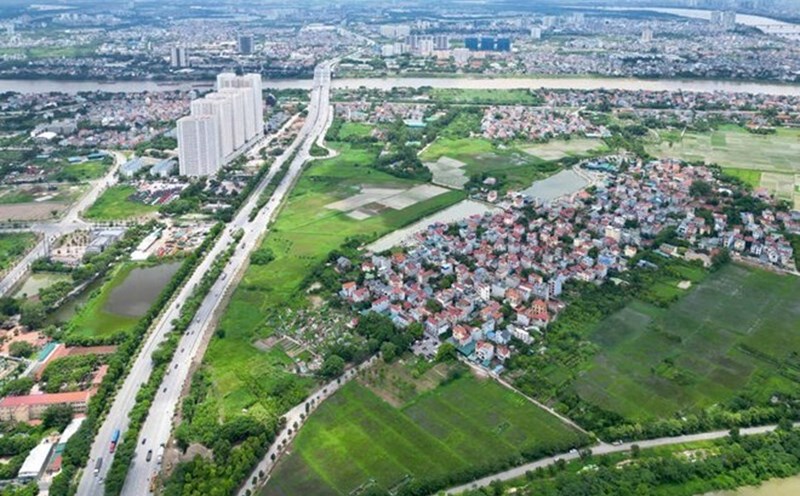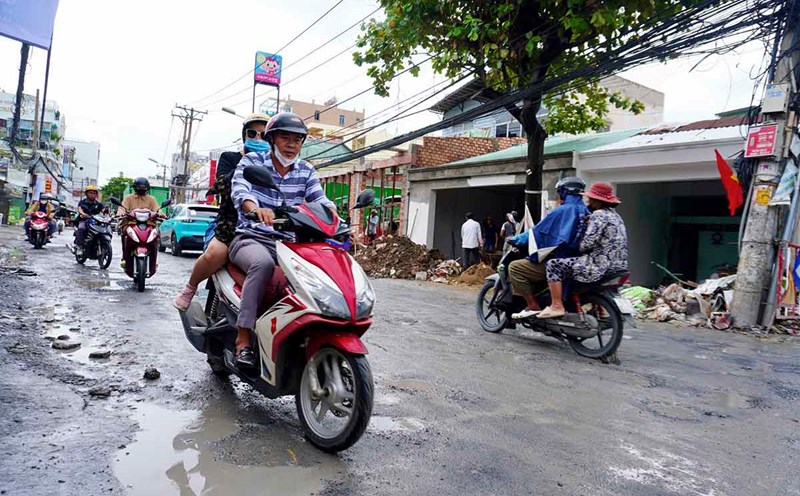Speaking with Lao Dong, lawyer Nguyen Hong Tam - Chi Cong & Thien Tam Law Firm LLC - said that according to Clause 5, Article 116 of the 2024 Land Law, households and individuals can apply to change the purpose of using agricultural land to residential land if the land plot is in accordance with the approved district-level land use planning, instead of having to rely on the annual land use plan as before under the 2013 Land Law.
This is an important step of easing, because district-level land use planning is a long-term plan (10 years, vision 20 years), while annual land use planning is less flexible and depends on each specific year.
However, lawyer Nguyen Hong Tam commented that changing land use purposes requires compliance with the overall planning, starting from the national land use planning approved by the National Assembly, to the land use plan at the provincial, district and commune levels. It is expected that after removing the district level from July 1, 2025, there will be new instructions related to changing land use purposes.
According to Mr. Tam, the change of land use purpose depends on the State's land use plan - because land is an asset owned by the entire people and managed according to the plan to ensure factors such as food security and social stability. Therefore, not all cases are allowed to convert from agricultural land to residential land.
Notably, the 2024 Land Law stipulates that the land price list is determined according to the principle of market price, through four calculation methods. This leads to a very high land use fee for converting land use purposes, almost equivalent to the price of buying new land. If people buy agricultural land with the expectation of switching to residential land, they need to calculate carefully, because in addition to the initial purchase price, the land use fee will be a large financial burden, far different from before when the land price list was much lower than the actual price.
Lawyer Tam recommends that people need to carefully consider the planning of the purchasing area, and at the same time clearly understand the land price list, the method of determining prices and the amount of land use fees to be paid before making a decision.
"If we still hope to only pay a small amount to convert to residential land, it is an unrealistic expectation in the context of the new law tightening to prevent budget losses" - said the lawyer.
He also rejected the information that, "only if people submit an application will the district approve the conversion of land use purposes". According to him, this conversion depends on a series of factors, from land use planning, general planning, to ensuring food security. The State will certainly have to carefully assess each case before allowing conversion.
For those who speculate on agricultural land, Mr. Tam warned of two major risks. The first is the possibility of not being able to change the purpose of use, leading to agricultural land being " buried" if it cannot be produced. Second, if converted, the land use fee payable is very high, causing financial losses to investors.











